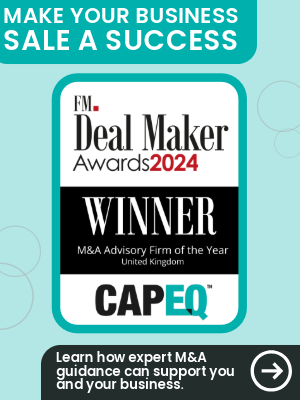The M&A world is rife with sloppy processes and empty promises – making it a tough call to filter good advisors from bad when building your M&A support team. Here are some pointers on what to find out and what not to ask.
You’ve decided to explore options for stepping back from your business. Whether or not you dilute your shareholding or walk away entirely, it’s the biggest asset you will ever sell.
So you need to do things right.
In most cases, the very nature of M&A for SMEs means you’re unlikely to have done  this before. That means you don’t have a trusted advisor lined up. You may have had a recommendation or two, you may have been badgered by cold calls from sell-side brokers and advisors, but it’s hard to know where to turn.
this before. That means you don’t have a trusted advisor lined up. You may have had a recommendation or two, you may have been badgered by cold calls from sell-side brokers and advisors, but it’s hard to know where to turn.
Your first challenge is to determine what type of M&A assistance you need.
If your business is likely to be worth <£1m you’ll probably look for a business transfer agent or broker. If it’s worth a few million, a corporate finance advisor should be your preferred choice. They can handle any sale up to around £150m, but from £50m upwards you could instead choose to go with an investment bank.
Of course, you don’t know what you’re worth yet. Even if its obvious which pool to fish in, you don’t know the fishermen or their capabilities.
Whatever you do – however great he or she is with numbers – don’t go to your accountant. That’s like asking a bicycle repair expert to fix your car.
Once you get into assessing a specialist business sale advisor, here are the ten questions you should be asking – and the sort of answers you should be getting in return.
What am I buying?
The answer should be experience, knowledge and skill, not a claimed ability to get the highest price. Price may be your first priority, but if the M&A advisor says the deal is all about the money – walk away. It’s not. It never is.
About 10% of the sale is about the numbers: 90% is about people, processes and hundreds of procedural issues to be addressed. We know: we use a checklist to address dozens of considerations for each transaction.
Who will handle my business sale?
The answer should be the people who impress you at a meeting and have the track record.
All too often, you meet the silver-tongued partner or sales rep then end up being represented by a less-experienced junior team.
Establish who you will be talking to day-to-day. Then get a commitment that this will not change once you’ve signed up.
How will you find the best possible buyer?
You need to know that your advisor is looking at ALL possibilities, narrowing these down to the perfect fit with what you have to offer.
Often, advisors approach a handful of obvious targets, then dress these up as the only viable options. A good M&A advisor will spend time and money searching far and wide – parallel markets, overseas acquirers, private equity – to give you a real choice of who to proceed with.
At worst, the advisor will be unethical – accepting quid pro quo backhanders or working as both buyer and seller with private equity – even pitching your business around their mates before being appointed.
Naturally they won’t admit to any of this, but it’s worth probing how they deal with conflicts of interest and understand what control you have over who your advisor approaches and when.
How often will you update me?
At CapEQ we produce a weekly report for our clients, indicating who we have talked to, what progress has been made and what the next steps might be. In our experience, this level of reporting is vanishingly rare.
At the very least, ensure that you will get minutes or summaries of every meeting – with action points to follow up.
How transparent are your processes?
Most advisors keep their cards close to their chests. They hoard information and keep it from their clients, hoping to cover up any failings, retain mystique, minimise discussions and avoid challenges to the approach being taken.
Their view seems to be that you cannot be held to a standard if the client has no idea what you’re up to. However, by not sharing information, they provide a poor service and add to the stress of a transaction.
You need to get on the front foot. Ask who will do what and when; how each stage will be handled; and how you can access information. If the advisor looks as if you’ve asked to marry their mother, you’ll know that transparency is not their middle name.
What technology do you use?
Some M&A advisors can barely fill in an Excel spreadsheet – even making a virtue of their technical illiteracy and reliance on a backroom of experts ‘who do that sort of thing’. In a world of accessible data and hi-tech solutions, this is luddite and a warning signal that your specialist is part of a bygone world, where ‘knowing Jeremy and a few hedge funds’ makes up for engagement with modern efficiency. Avoid.
Up-to-date advisors use technology to drive efficiency and track responses. Here you need to understand how the tech benefits you, not just saving time/money of our clients.
For example, our tech stack allows us to reach markets, sectors and potential acquirers globally. It ensures consistent processes, and gives you transparency and accessibility. We use IT to track contacts and provide real-time progress updates.
So ask your advisor-in-waiting why they are not fully invested in tech.
What service level can you promise me?
A good M&A advisor is available 24/7 – with limitations – from the start of the relationship until after your business sale has completed. Ask for KPIs, pledges or guarantees in writing, relating to the level of service you can expect.
If the M&A advisor cannot supply this, you can be fairly certain they are not geared up to give you the level of support you are entitled to expect.
How will you take the strain?
M&As are not easy. They carry few guarantees. They are stressful. Your advisor needs to reassure you that they can take the punches for you, easing the pressure.
You need to know that when (inevitably) you get annoyed, worried or unfocused, they will be there to take the pressure off your shoulders.
Ask if you can call at the weekend in a crisis. Ask how long they will take to call back – and who will make that call. Determine if the answers sound reassuring or evasive. Then decide if you believe them.
Do I like you?
Obviously this is not an explicit question that you will ask your potential advisor. It’s a question you ask to yourself as you chat to them and get to know their character.
Lots of financial thinkers would suggest the answer is largely irrelevant, when it’s vitally important. Selling your business is not just a financial transaction. It is a hard slog, and you are also invested emotionally. If you don’t have a strong sense of rapport with your M&A advisors, that journey is going to be debilitating.
You need to know that not only are they on your side, but they also really care about protecting your interests and getting the best for you.
Such trust is almost always allied to liking the individual and organisation, not just respecting them. You need to get along.
Pro tip: The 'EQ' in CapEQ stands for Emotional Quotient – or empathy.
We work only with people we like and trust, turning down projects and people that don’t fit our ethos and values.
It works for us and we believe it works for everyone. Don’t underestimate the importance of EQ when appointing someone who is going to be intrinsic to your life and thinking for many months to come.
Can I speak to past clients you haven’t handpicked?
Anyone can get a mate to post a glowing review. Even inferior operations can dig out one or two happy-ish customers. The acid test is to talk to people whose M&A deals did not go through, or who do not feature on the website.
If your potential partner is not prepared to let you select who to talk to from a list of their past clients, ask yourself why not. Accept one or two refusals – we all have one or two bad relationships and outcomes in our past – but if you are steered back to the one or two recommendations that they chose, handle with extreme care.
What not to ask an M&A advisor
What price can you get me?
As noted above in Q1, price follows process. It is not the start point, but the end result that matters.
Anyone can make up a number. Just like a dodgy estate agent, some business sale advisors will jack up the estimate to win your business. Instead of fixating on price, you should be looking for value and expertise, plus an ability to structure a deal, manage risk and convince you that the advisor will keep your best interests at heart. That will result in a transaction which achieves everything you want from a deal – value, competence, and security.
How well do you know my market?
In the ‘80s and ‘90s, advisors specialised. They dug deep within a sector, meeting players, researching activity and generally getting to know what needed knowing.
However, the internet and digital revolution has turned such specialism into a limitation. Bespoke research can now reach far deeper and further. Databases provide instant knowledge of sectors and potential suitors. Different skills are needed in today’s world, extending the net and exploring new discoveries, rather than fishing in one small pool.
You may be tempted to hire an M&A advisor specialising in your sector. It’s worth probing whether they have ever acted for acquirers in your sector. Some even boast about how well they know the acquirers – which should ring alarm bells. Are they really acting for you, or just trying to get another deal done?
Most generalists can cover most bases, so seek out someone who has some experience in your field, but don’t presume they are the best option.
What’s your success rate?
This is an understandable but ambiguous question. We know of advisors who only take on ‘done’ deals. Others under-price to guarantee a sale. Some push through sales which should never have been completed, simply to boost their own success rate.
By contrast, we have advised clients to pull a sale, because they have not been ready to maximise the benefits, or even commit emotionally to the transition. Sure, we get most of our deals done, but never at the expense of our clients.
So if you get a 100% guarantee of a sale, you can be 100% certain that you are not being looked after properly.


